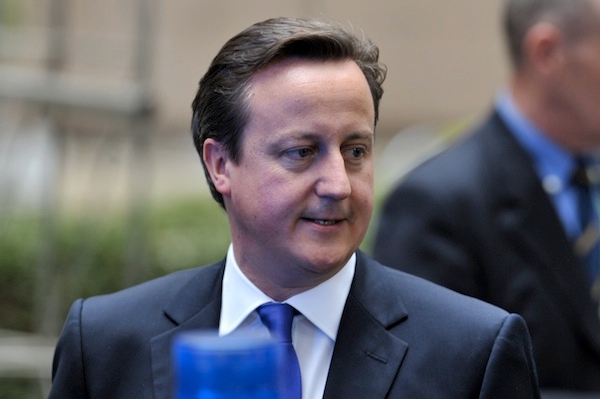David Cameron’s interview with the Telegraph today reveals that the Prime Minister would not campaign for an ‘out’ vote in a referendum on Britain’s membership of the European Union. This will confuse some Conservatives, who had hoped that the ‘fresh deal and a fresh settlement’ that the Prime Minister described in the chamber earlier this month would either lead to a successful renegotiation followed by a referendum in which the government pushed for a ‘yes’ vote, or a failed attempt at renegotiation followed by a referendum in which the government pushed for a ‘no’ vote.
But Cameron told Robert Winnett that he would never campaign for an ‘out’ vote. He adds:
‘It comes back to this, who are going to be the winning nations for the 21st century? If your vision of Britain was that we should just withdraw and become a sort of greater Switzerland, I think that would be a complete denial of our national interests.’
Paul Goodman points out on ConHome this morning that the Prime Minister has also weakened his negotiating position by showing his hand before talks have even begun. The threat of Britain leaving the EU should other leaders fail to budge was a ‘powerful card’, argues Goodman. It was also a powerful card to flash at his own party every so often: don’t forget that over 100 MPs signed a letter to the Prime Minister from John Baron – and a further five PPSs wrote their own letters – demanding legislation in this Parliament for a referendum in the next.
He also says austerity is likely to last until 2020, and hints that the next comprehensive spending review will be approached in a different way now that the coalition has entered a new, tense, phase of relations. ‘We talked about the need to have one. But how many years it runs for, how exactly it works, we’re going to spend more time talking about that.’
His remarks on those MPs who rebelled on Lords reform and Europe will do little to decrease those tensions with the Liberal Democrats. There’s a strong hint that we may see promotions for some rebels, and that the others have not been cast into the wilderness forever when Cameron says:
‘If no-one who ever voted against the government [got a] ministerial office… [Iain] Duncan Smith wouldn’t be in the cabinet. I think politics has changed, there are people who come with more strong and independent views. It’s difficult in coalition because sometimes you’re coming forward with proposals that your coalition partners are more enthusiastic about than you are.’







Comments